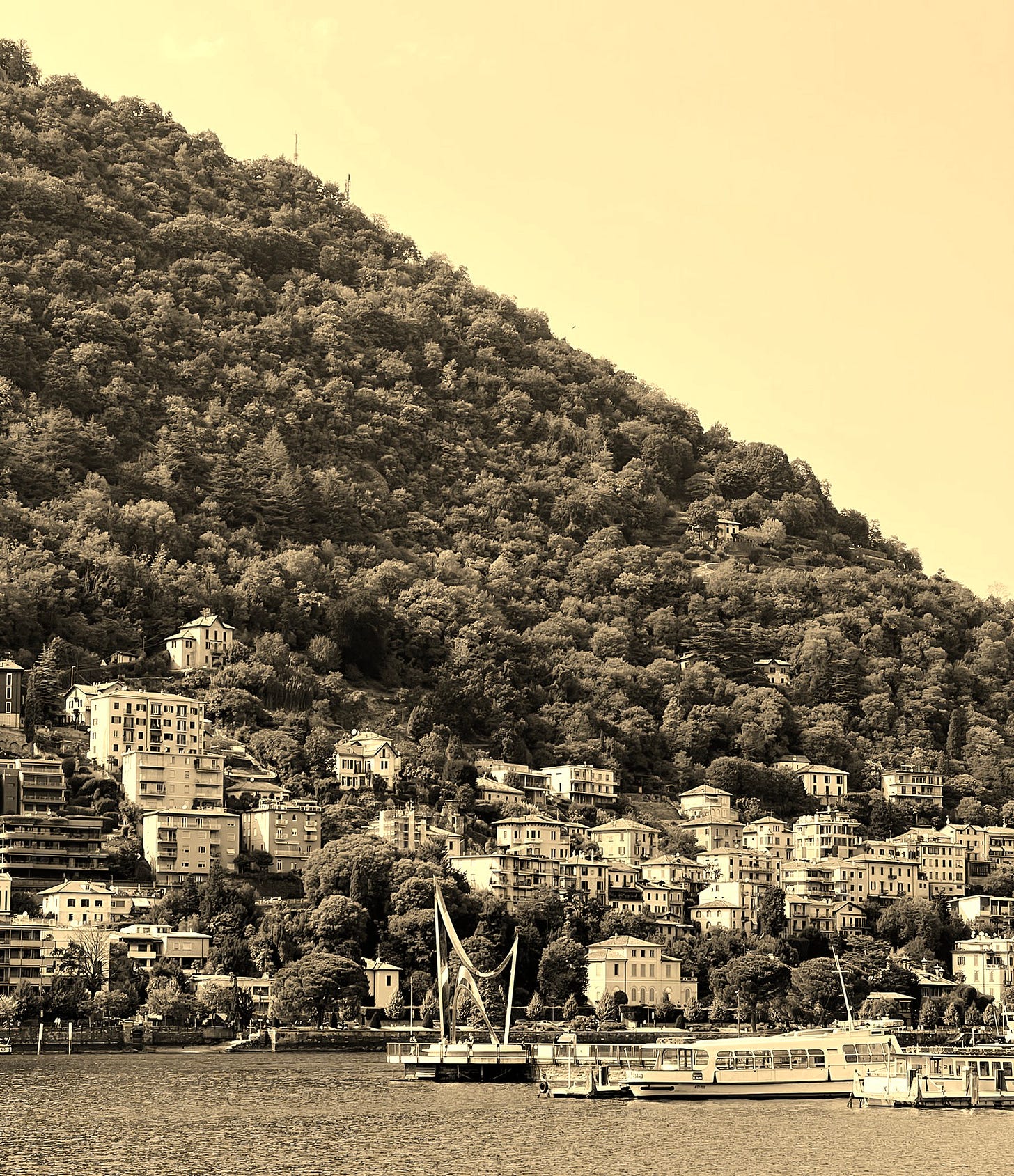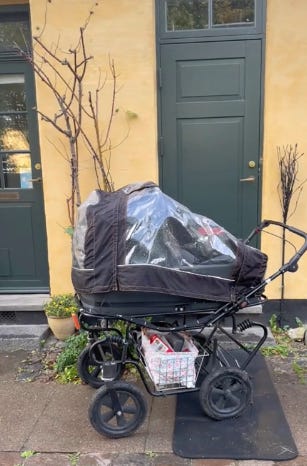How Far You Have to Go
why traveling is less about seeing the world and more about noticing your own
Travel Is Supposed to Change You—But Does It?
Travel is supposed to change you—or at least, that’s the pitch. New places, new perspectives, new you. But here’s the thing: some people hop through a dozen countries and come back as the exact same person, while others visit one unfamiliar town and return like their brain’s been completely reupholstered. What’s the difference?
I’ve been thinking about this through the lens of information theory—a field that’s basically about how much “surprise” data can hold. The key, I think, is entropy. Specifically, the entropy of your brain’s predictive models: the invisible set of rules you use to autopilot through life.
What Even Is Entropy? (Don’t Worry, This Part’s Fun)
In information theory, entropy is a measure of uncertainty—a.k.a. surprise. High entropy means chaos, unpredictability, the kind of stuff that makes your brain sit up and say, Wait, what just happened? Low entropy is the opposite: everything makes sense, the patterns are clear, no alarms go off.
Most of the time, our brains work hard to keep entropy low. It’s not conscious; it’s just how we operate. Shops close at this hour. People queue like this. Say X, get Y response. The world hums along like a well-oiled machine, built just for you.
Then you travel.
When Copenhagen Breaks Your Brain
You’re in Copenhagen, wandering through a square, and there it is: a stroller. Baby inside. No adult in sight. Your instincts kick in. Guard the stroller. Call for help. Something is clearly wrong.
Except it’s..kinda not. Someone casually mentions, Oh, the parents are around the corner grabbing lunch. Totally normal. Crime’s low here. And sure, you accept the explanation. But deep down, your hands are still clammy. Your brain refuses to let it go: wouldn’t it still be better—safer—to bring the baby inside?
Here’s what’s happening: your predictive model for how the world works just crashed. The rule that babies should never be left alone in public—a rule you’ve internalized—is suddenly revealed as exactly that: a rule, not a universal truth. For the first time, you’re seeing the scaffolding that holds your worldview together.
The Problem With Tourist Travel
Here’s why most travel doesn’t do this: it’s designed to protect your predictive models. Big hotels, curated tours, Instagram-ready photo ops—they smooth the edges, ensuring nothing glitches. The world looks different, but it works exactly the same.
Real travel—the kind that changes you—isn’t about comfort. It’s about encountering recoverable prediction errors.
• Recoverable because if something is too unfamiliar, your brain just files it away as “weird foreign stuff” and moves on.
• Prediction errors because these are what force your brain to rewrite the rules.
The best travel isn’t about how many places you see; it’s about how many of your assumptions get challenged in a way that makes you rebuild your mental models.
Three Things I’ve Noticed About Travel
1. Travel in your twenties feels bigger.
It’s not just the newness of the places—it’s the newness of you. Your twenties are when your brain is still eagerly breaking itself apart and putting itself back together. A trip at this stage isn’t just about where you go—it’s about who you let it make you. Later in life, the renovations slow. Same trip, less scaffolding to shake.
2. Living somewhere beats visiting ten places.
Visiting ten countries in two weeks is like scrolling headlines: you get the gist, maybe a few highlights, but the story slips past you. Living somewhere forces you into the quiet parts—the way people argue, how time feels slower or faster, the small rituals you only catch if you stay long enough for them to feel obvious. It’s not the postcard moments that change you—it’s the ones you almost don’t notice.
3. Kids are the ultimate entropy machines.
A Thai mother handing her toddler a knife. A six-year-old in Tokyo, calmly navigating the subway alone. Merely surprising feels insufficient—it’s destabilizing. Kids and their vulnerability have this way of exposing the scaffolding of your beliefs, showing you how much of what you think is “safe” or “normal” is just a set of rules you’ve absorbed without asking. Watching them is like seeing your worldview glitch in real time.
Counterintuitive Advice for Better Travel
1. Stop chasing passport stamps.
Instead of racking up countries, look for experiences that force your brain to glitch. The best travel isn’t about exoticness; it’s about differences you can understand. The Eiffel Tower isn’t going to change you. But the small town 50 kilometers outside Paris, where the shopkeeper glares at you because you don’t know how to ask for bread properly—that might.
2. Start with small tweaks.
Sometimes the most surprising lessons come from slightly unfamiliar places: a nearby town with different norms than you’re used to, a campus club devoted to a hobby or culture that feels entirely outside your orbit.
3. Travel doesn’t end when you get home.
Pay attention to how your assumptions shift once you’re back. How many “truths” start feeling more like choices?
Travel Isn’t About Answers
At its best, travel doesn’t give you answers—it teaches you better questions…and the questions start small: "Why do they leave babies outside cafes here?"
But they lead somewhere bigger.
If you’re anything like me, your first instinct is to recoil, to judge the Danes as crazy. But unattended babies aren’t quirks of Danish parenting—they’re the visible tip of massive, complicated systems: healthcare that reshapes risk calculation, urban design that alters the meanings of safety, public policies that contribute to the normalization of this.
And the interesting part isn’t really the differences themselves.
It’s how these differences reveal how your society operates. You start to see your culture’s practices and norms not as ‘normal’ per se, but as specific implementation attempts at solving general problems every society has to deal with.
You go back home and your society’s solutions look less like universal truths, and more like a very specific set of trade-offs.
It’s also why I’d argue travel changes you in ways that opening up a book can’t.
You can read thousands of papers, but it’s a very different experience, seeing another society’s source code running in production. You come back with a new kind of awareness—not just of other possibilities, but of the nature of possibility itself.
So to answer the initial question: most people agree travel broadens your horizons, but that’s not quite right.
What it does is show you that your horizons were never fixed in the first place, they were just one config among many.
That’s the gift of travel: not answers, but the ability to see your own life as provisional, unfinished, and ripe for reinvention. The world isn’t just bigger; it’s softer, more malleable than you thought.
And so are you.



i really like how you structured this piece it just worked for my brain
Very thoughtful and incredibly well written. Loved reading it. I have always seen travel from a trifocal lens of exposure, immersion and absorption and this feels deeply relatable.